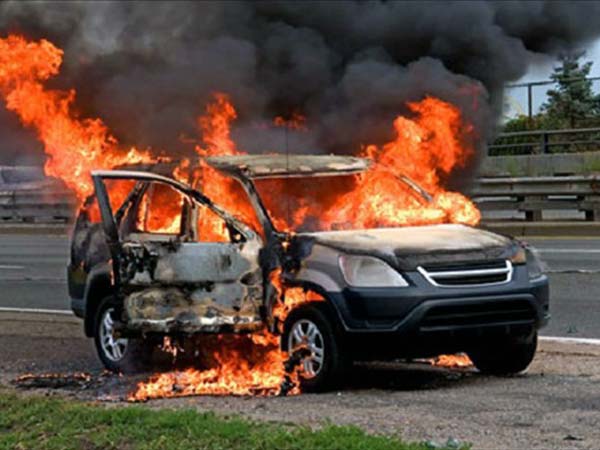Top 10 Causes of Car Fires: What You Need to Know

Car fires can be terrifying and destructive events, posing a significant risk to drivers, passengers, and bystanders. Understanding the causes of car fires is crucial for preventing these incidents and ensuring your safety on the road. In this blog post, we will explore the top 10 causes of car fires, shedding light on potential hazards and offering practical tips to minimize the risks.
- Electrical Malfunctions: Electrical problems, such as faulty wiring, malfunctioning switches, or short circuits, are one of the leading causes of car fires. These issues can generate sparks, which, when combined with flammable materials or leaking fuel, can ignite a fire.
Prevention Tip: Regularly inspect and maintain your vehicle’s electrical system, and promptly address any warning signs, such as flickering lights or blown fuses.
- Fuel Leaks: Fuel leaks are another common cause of car fires. Whether due to damaged fuel lines, loose connections, or punctured gas tanks, leaking fuel can come into contact with hot engine components or electrical sparks, leading to combustion.
Prevention Tip: Regularly check for fuel leaks, pay attention to any unusual odors, and avoid parking over puddles or wet areas that could mask a fuel leak.
- Engine Overheating: An overheated engine can potentially cause a fire. When engine coolant levels are low, or there are issues with the cooling system, the engine can overheat, leading to a fire if not addressed promptly.
Prevention Tip: Routinely check coolant levels, monitor your temperature gauge, and ensure proper maintenance of the cooling system.
- Flammable Fluids: Storing flammable fluids such as gasoline, oil, or other chemicals in your vehicle can significantly increase the risk of a fire. In case of an accident or extreme heat, these substances can ignite and rapidly fuel a fire.
Prevention Tip: Avoid storing flammable fluids inside your vehicle whenever possible, and securely seal containers if you need to transport them.
- Arson: While less common, intentional acts of arson can lead to devastating car fires. Vandals or criminals may target vehicles for various reasons, causing significant damage and putting lives at risk.
Prevention Tip: Park your vehicle in well-lit areas and consider investing in security measures, such as surveillance cameras or car alarms.
- Exhaust System Issues: Problems with the exhaust system, such as leaks or damaged components, can cause the exhaust to become extremely hot. If the hot exhaust comes into contact with flammable materials underneath the vehicle, a fire can ignite.
Prevention Tip: Regularly inspect your exhaust system, watch for signs of rust or damage, and address any issues promptly.
- Electrical Accessories: Using aftermarket electrical accessories, such as low-quality chargers or adapters, can overload the electrical system and increase the risk of a fire.
Prevention Tip: Opt for high-quality, certified electrical accessories, and avoid overloading your vehicle’s electrical system.
- Spontaneous Combustion: Certain materials or substances, such as oily rags, can undergo spontaneous combustion under specific conditions. If these materials are not stored or disposed of correctly, they can ignite and start a fire.
Prevention Tip: Properly store and dispose of flammable materials, ensuring they are kept away from heat sources.
- Collisions and Accidents: Car accidents can rupture fuel tanks, damage electrical systems, or create sparks that can trigger fires. Additionally, the impact may rupture pressurized fluid lines, leading to the release of flammable fluids.
Prevention Tip: Drive defensively, follow traffic rules, and maintain a safe distance from other vehicles to reduce the risk of accidents.
- Design or Manufacturing Defects: In rare cases, design or manufacturing defects can lead to car fires. These defects may include faulty wiring, fuel system issues, or inadequate insulation materials.
Prevention Tip: Stay informed about any vehicle recalls or safety notices related to your vehicle make and model, and promptly address any identified defects.
Conclusion: Understanding the top causes of car fires empowers you to take proactive measures to prevent such incidents. By maintaining your vehicle, addressing warning signs, and practicing safe driving habits, you can significantly reduce the risk of a car fire. Remember, regular inspections and prompt maintenance are crucial to keeping yourself and others safe on the road.
Picture Courtesy: Google/images are subject to copyright








